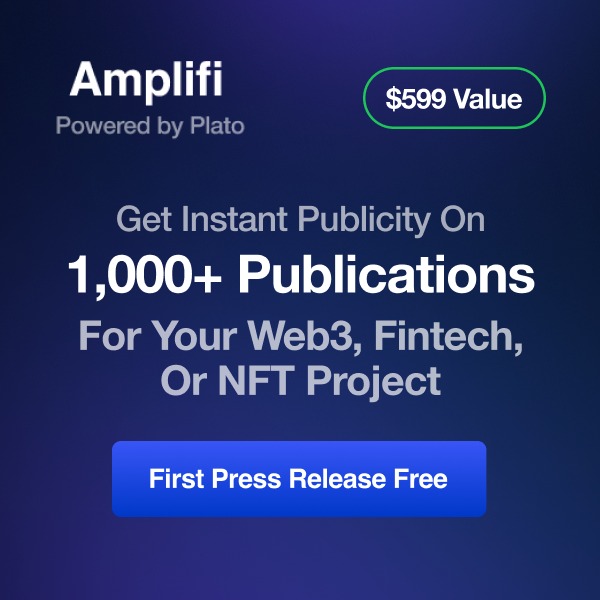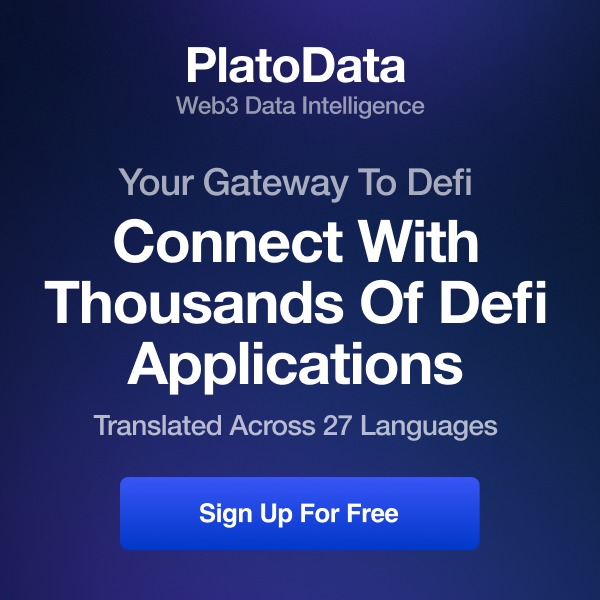Tag: incentivize
Transient Network Launches Next-Gen TradingView DApp for Crypto
 Transient Network has launched its crypto prediction DApp named CryptoPool. Users can create a prediction pool and earn rewards if ...
Transient Network has launched its crypto prediction DApp named CryptoPool. Users can create a prediction pool and earn rewards if ... GCBC is Giving Rare NFT Holders a Seat at the Owner’s Table
TORONTO, ON, Jan 18, 2022 - (ACN Newswire) - Great Canadian Beaver Club [GCBC], an original and private club with a collection of over 10,420 NFTs, has announced its decision to offer holders of these rare NFT memberships a seat at the owner's table. Tagged the first community structured NFT platform, GCBC is allowing these holders to sit and speak for the community.

The first Canadian club with no borders, GCBC has a clear roadmap first of which includes the launch of its decentralized finance [DeFi] app which will be a free-to-use platform for all GCBC holders. In addition to this, this private club seeks to incentivize token holders by offering them an opportunity to stake GCBC NFT memberships to earn $PELT tokens. A 30-day pre-stake or burn period has been integrated into the contract. Members must stake for 30 days before rewards are issued. $PELT Tokens that would be rewarded if staked will be sent to a burn address if not staked, creating a deflationary supply of $PELT.
$PELT tokens, furthermore, will have in-app usage—allowing owners to execute transactions and undertake tasks on the network.
An impressive feature of this exclusive Canadian club is its firm resolve to foster proper compensation of token holders and community members alike. As part of its plans to deliver this, a community bank has been initiated. To fund this bank, GCBC has partnered with one of the leading Bitcoin ATM providers, and according to the details of the agreement, 100% of the revenue generated will be sent to the bank. That's not all, 50% of aftermarket sales, starting from day 1, will be sent to the bank as well as 20% of the total supply of $PELT.
Yet another impressive feature of GCBC is the Most Valuable Beaver [MVB] facet. Aimed at rewarding beavers for their extensive work towards the growth of the club, this feature will aid in the promotion of a role-based colony where constant support is appreciated and rewarded.
GCBC Lodges - Giving NFT Holders a Seat at the Owner's Table
Giving holders private access and input in the overall decision-making process, GCBC has instituted an array of lodges. First of these lodges is the Political Lodge which will give these NFT holders exclusive access to govern the colony based on a set of evolving guidelines.
The Beavers Den, on the other hand, will give GCBC NFT owners access to make input on blockchain investments to diversify their portfolios. The Celebrity, Technology, and Party Lodges will give holders of these rare NFTs access to make input on advertising campaigns, technological developments for the colony, and planning of exclusive annual parties, respectively.
About GCBC
The Great Canadian Beaver Club otherwise referred to as GCBC is an exclusive club with a collection of 10,420 rare and unique NFTs which exist on an ERC-721 contract on the premier DApp network, Ethereum. Comprising 250+ hand-drawn traits from talented artist Dino Tomic, each of these NFTs is one of a kind. Aimed at giving these membership holders access to a plethora of lodges and incentives, GCBC is offering these owners seats at the decision-making table.
Social Contact
Twitter: https://twitter.com/GCBClub
Instagram: https://www.instagram.com/gcbclub/
Discord: https://discord.gg/bwStYB42zT
Media Contact
Mark, CEO, Great Canadian Beaver Club [GCBC]
Email: [email protected]
Website: https://gcbnft.io
SOURCE: Great Canadian Beaver Club [GCBC]
Copyright 2022 ACN Newswire. All rights reserved. www.acnnewswire.com
‘Huge win’ could see CRV rallying to $10 as Curve wars intensify
Blockchain Courts and Cats That Look Like Dogs: How DAOs Wrestle With the Law
Hacker News Can’t Get Enough of Web3

ICON commits $200M to interoperability incentive fund
![]()
The South Korean blockchain hopes to fund its interoperability technology to create new cross-chain applications.
Arweave Protocol Review : Permanent Data Storage with Low Fees

All of us think that the information uploaded on the internet always remains there. However, this is not the case, in reality, the websites, data that make up the whole internet are often censored, changed, and sometimes removed also. Big centralized enterprises such as AWS, Google Cloud, IBM, DELL EMC store most of the data on the internet. They act as a medium in providing users access to applications, websites and can easily revoke our access anytime. In case these companies don’t have enough funding to maintain the servers, our data can also disappear. Long-term data storage is a big problem faced by internet users currently. Arweave solves all of these problems by following a decentralized approach. What is Arweave? Arweave is a decentralized protocol that allows you to store data permanently on the internet by paying fees only one time. It connects people who need storage to those people having disk space on their hardware devices. It is designed to provide internet users with permanent, cost-efficient data storage. Arweave is built differently than any major blockchains such as Ethereum, Cosmos, Solana, etc. It is built on the blockchain-like data structure called blockweave. In blockweave, each block is linked to the previous block and to a recall block (a random block from the history of the blockweave). The blockweave supports a permanent and decentralized web called the permaweb. It is a collection of websites, data, and decentralized apps (dApps) that can be easily accessed by users through internet browsers. Arweave’s native token AR is used for transactions fees on the network and also used to incentivize miners for storing copies of data and mining new blocks. Comparison between Traditional Web and Permaweb The Traditional Web The Permaweb Information is mutable Information is immutable The traditional web is centralized Permaweb is decentralized Monopolized Users have control over their data Link Rot issue exists Zero upkeep Storing is expensive Pay once and store forever How does Arweave Works? The above diagram shows the structure of the Arweave Protocol. Similar to traditional blockchains, all the information of websites and applications on the permaweb is stored in the collection of blocks that form blockweave. In a traditional blockchain like Ethereum, each block is linked to its previous block. However, in the case of Arweave’s blockweave, each block is linked to its previous block and another random block from the blockweave history known as its recall block. Recall block is a key element of Arweave’s consensus mechanism, known as PoA. Here’s how Proof-of-Access works: Miners provide data storage and also store copies of data stored in the network in exchange for AR tokens. They are responsible for maintaining the blockweave network. Miners have to provide cryptographic proof that they have access to the recall block, then only they can mine or verify a new block. This is the reason, why Arweave’s consensus mechanism is called PoA. Arweave’s goal of long-term data storage is made possible due to miners following the rules set by the proof of access consensus mechanism. When a rare recall block needs to be linked, miners storing that rare block have to face less competition against other miners, and the probability of receiving block reward increases. Thus, for miners who also store rare blocks, their chances of getting more rewards increase in the long term. It is not compulsory for miners to store all the data in the network. Miners can choose which block or transactions, they would like to store. Miners can also create their own “content policy” which will restrain certain information from being stored on their hardware devices. Whenever data distribution takes place, it scans the content policies of each miner, and if the content is restricted by the miner’s content policy, that particular data will be not accepted by the miner’s transaction pool. Tokenomics of Arweave AR tokens are used for payment by users for storing their data permanently on the Arweave network. AR tokens are also received by miners for storing data and mining new blocks. All the transaction fees of the Arweave network do not go to miners at one time. The majority of transaction fees go to a storage “endowment”, fees are gradually disbursed to miners over time from this endowment. User pays fees only one time and interest accrued on it is distributed to miners. This incentivization cliff measure is taken to minimize the AR token volatility while also preserving the long-term survival of the mining-based consensus mechanism. Arweave’s blockweave data structure uses Proof of Access as a consensus mechanism. AR tokens have a maximum supply of 66 million. AR tokens have a current circulating supply of 50 million. On the network’s launch, 55 … Continued
The post Arweave Protocol Review : Permanent Data Storage with Low Fees appeared first on Cryptoknowmics-Crypto News and Media Platform.
Gitcoin Revives Debate Over Quadratic Funding with New Dev Protocol
Crypto.com Lists New Ethereum-Based Decentralized Exchange Token

Singapore-based crypto exchange giant Crypto.com is listing a low-cap Ethereum-based hybrid liquidity decentralized exchange token. In a new announcement, Crypto.com is introducing IDEX (IDEX), formerly AuroraDAO, for trading on the company’s app. IDEX is a multi-blockchain decentralized exchange offering a non-custodial solution for trading digital assets. The IDEX token is used to secure the network and […]
The post Crypto.com Lists New Ethereum-Based Decentralized Exchange Token appeared first on The Daily Hodl.




